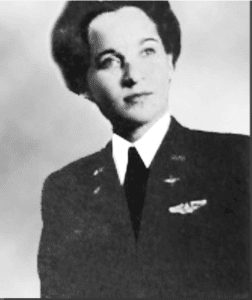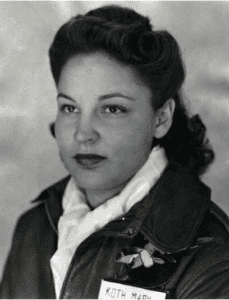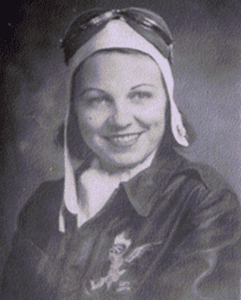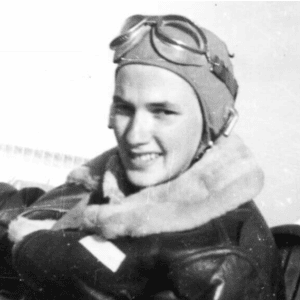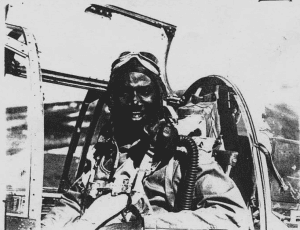 Henry Alphonso Wise, Jr.
Henry Alphonso Wise, Jr.
May 26, 1920 – May 2, 2003
Class: 44-B-SE
Unit: 99th Fighter Squadron
Born and raised in Cheriton, VA., Wise graduated from Virginian Union University, he then joined the U.S. Army Air Corps and graduated from flight training on Feb. 8, 1944, at Tuskegee Army Air Field in Alabama. He soon deployed to North Africa with the 99th Fighter Squadron. The squadron moved from Tunisia to Italy on July 28. Although it moved within the country, the squadron remained based in Italy for the rest of the war.
On Aug. 26, 1944 fifty-six P-51 Mustangs escorted bombers from the 304th Bombardment Wing to barracks near the Bulgarian airfield at Baneasa. The bombers were 10 minutes late arriving at the rendezvous point, and when they arrived at the target, most of the bombs fell in a nearby wooded area.
On the trip back to base in Italy, Wise was forced to bail when the oil pressure dropped and smoke began to pour from his plane.
“Immediately after hitting the ground, I was captured by a group of Bulgarian soldiers and taken to prison,” Wise said in an interview published in “The Tuskegee Airmen: The Men Who Changed a Nation” by Charles E. Francis and Adolph Caso. “I was placed in a local guard house at the nearest enemy camp. I stayed there only two days, but in those two days, I almost starved because I couldn’t eat the type of food they gave me.
“On the third day, I was placed under a guard and carried across country to a prisoner of war camp. The camp was a lone stone building constructed to hold about 100 men. But already there were about 300 men at the camp, all Allied fliers — British, North Africans, Yugoslavians, Australians, Poles and Americans. Officers and enlisted men were all encamped together, dirty, hungry and definitely in need of clothing because all of it had been taken when they were captured.
“I was the only Negro in the camp. However, I got along as well as the others, and no difference was shown by the Bulgarians or my fellow prisoners. We shared the same beds, same food and same difficulties. We suffered no physical punishment such as torture and beatings. Three weeks after I arrived at the prison camp, the Russians moved into the country and forced the Bulgarians to sign peace terms. We were freed and immediately sent across the border.”
The POWs were evacuated through Turkey and Egypt. In September, Wise returned to the 99th Fighter Squadron in Italy: He was promoted to first lieutenant and sent home. According to news reports, Wise was awarded a Purple Heart for his military service.
Learn more about the 32 captured Tuskegee Airmen POWs.
Back in the United States, Wise graduated from Howard University Medical School. In 1955, he opened a private practice in Bowie, Md., and joined the staff of Prince George’s Hospital in Cheverly, Md. For 14 years, Wise was the hospital’s only black doctor. He also served as medical director at Bowie State University. Wise maintained his private practice until 1992 and made house calls to many of his patients. Wise also volunteered with Maryland’s state- sponsored Youth Motivational Program, which provided training and scholarships to hundreds of students.
Wise died May 2, 2003, and is buried at Arlington National Cemetery in Arlington, Va. In October 2005, a new high school in Upper Marlboro, Md., was named Dr. Henry A. Wise Jr. High School.
Sources:
The CAF Red Tail Squadron is a volunteer-driven organization dedicated to educating audiences across the country about the history and legacy of the Tuskegee Airmen, America’s first black military pilots and their support personnel. Learn more at www.redtail.org.


